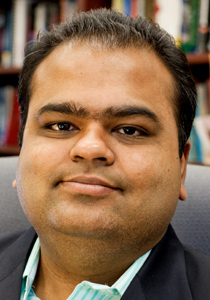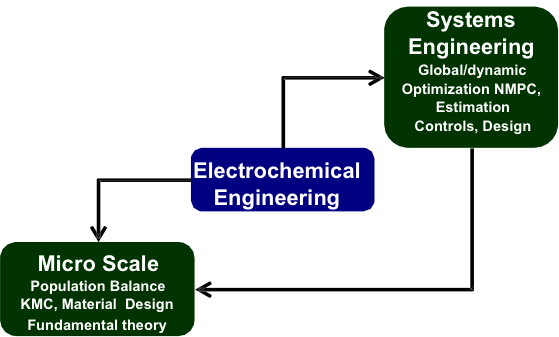Shoko Saji Bagwell
The 2014-15 academic year is off to a good start for ChemE, with the hiring of Associate Professor Venkat Subramanian. 
In partnership with the Clean Energy Institute (CEI), ChemE set out to recruit a faculty with expertise in batteries and energy storage. Prof. Subramanian’s research focuses on modeling, analyzing and designing cost-effective, energy-efficient and environmentally benign electrochemical systems, in particular devices such as batteries, solar cells, fuel cells and sensors. His group has developed the fastest algorithm reported in the literature for simulating the performance of lithium-ion batteries. Prof. Subramanian's research is well aligned with the mission of CEI and a perfect complement to the department's strengths in energy materials and systems. Prof. Subramanian will hold an adjunct appointment in Electrical Engineering, a membership in CEI, and will be an active collaborator with the Pacific Northwest National Laboratory (PNNL).
“Prof. Subramanian is a highly recognized authority in the field of lithium-ion battery simulation and has a strong record of research contributions with practical implications,” says Department Chair François Baneyx. “He will further strengthen ChemE’s partnerships with CEI and Electrical Engineering as well as our collaboration with PNNL.”

“My research is multidisciplinary in nature and encompasses energy, environmental, electrical, systems and chemical engineering,” says Subramanian. “I saw a great opportunity here at UW to scale up my efforts in the renewable energy area and grid scale. I look forward to taking my research to multiple disciplines and wider reach.” Subramanian’s research is guided by the belief that detailed and efficient modeling of electrochemical reactions occurring at the electrode-electrolyte interface is essential for designing high power, maintenance-free sustainable alternative power sources for the future.
Prior to joining the UW, Subramanian was an Associate Professor in the Department of Energy, Environmental and Chemical Engineering at Washington University in St. Louis and the principal investigator of the Modeling, Analysis and Process-control Laboratory for Electrochemical systems (M.A.P.L.E Lab), a position he had held since September 2009. His past academic appointments include Assistant and Associate Professorship with the Tennessee Technological University and Research Assistant Professorship with the University of South Carolina after earning his Ph.D. in Chemical Engineering from the same institution in 2001.